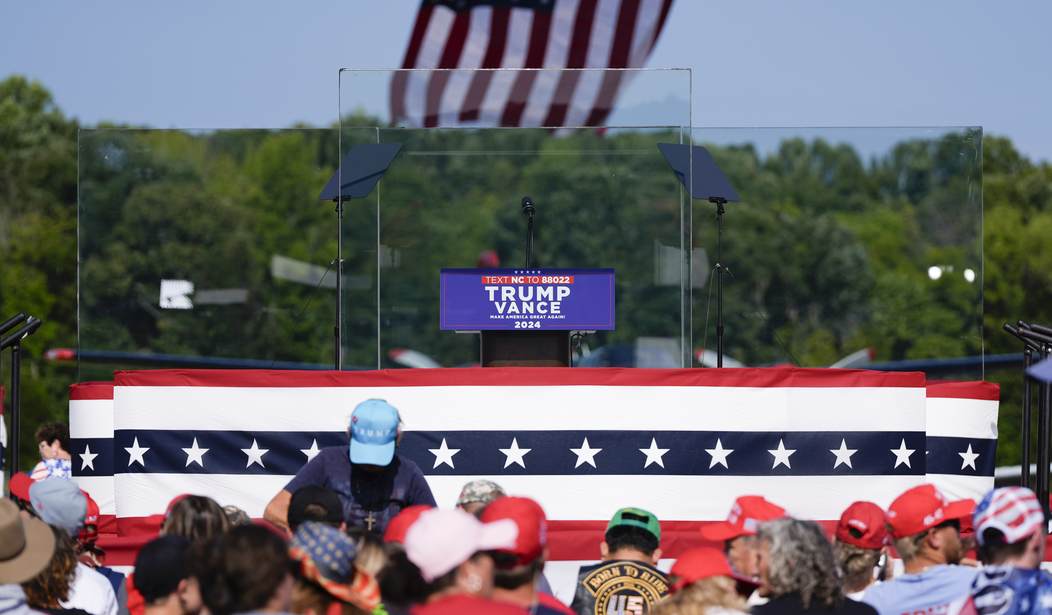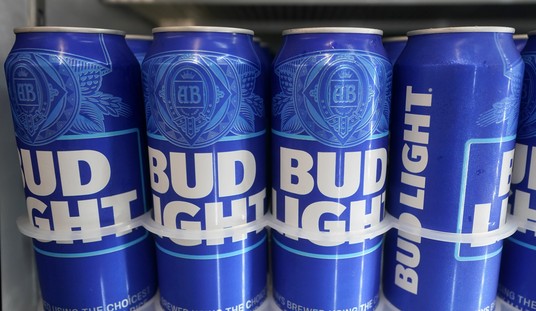Presidential elections in the Tar Heel State have been exceedingly close and competitive since 2008, when Barack Obama carried North Carolina by a fraction of a percentage point over John McCain. GOP tickets have won there ever since, but always quite narrowly, with Mitt Romney being the only Republican nominee to garner more than 50 percent of the statewide vote since George W. Bush coasted by double digits two decades ago. Recent US Senate elections have been similarly tight in North Carolina. According to the RealClearPolitics average, Donald Trump currently holds a tiny polling lead of less than one point in the state. Trump led by an even thinner margin there (+0.2 percent) four years ago, and ended up beating that average (+1.3 percent) to squeak out a win over Joe Biden.
How are things shaping up this year, beyond the polling? A well-respected Republican political operative in North Carolina -- dubbed "one of the most powerful people that no one's ever heard of" by a prominent local media outlet in a 2018 profile piece -- published the following summary of the Tar Heel State's early voting totals on Monday:
Day 11 #ncpol EV by party + a note re: CANNIBALS:
— Jim Blaine (@JimBlaine) October 28, 2024
DEM
24: 938,168
20: 1,288,526
Δ:🔻350,358⚠️
GOP
24: 961,872
20: 958,146
Δ:⬆️3,726
UNA
24: 904,670
20: 930,607
Δ:⬇️25,937
Is @NCGOP "cannibalizing" Election Day vote?
20 Election Day voters yet to vote by party:
R: 278,389
D:…
The tweet by Blaine (the aforementioned profile story is available here) continued 'below the fold:'
Is @NCGOP "cannibalizing" Election Day vote?20 Election Day voters yet to vote by party:
R: 278,389
D: 192,517
U: 269,693
I've read these numbers over several times. They seem quite promising -- almost shockingly so -- for Republicans. The biggest number that stands out, and not just because of the 'warning' icon next to it, is the precipitous drop in Democratic early vote participation, compared to 2020. Keep in mind, that election was held during COVID, so the baselines can be a little weird. Also keep in mind that Democrats won the early vote in North Carolina in 2020, but Trump's Election Day support put him narrowly over the top. GOP early voting is up slightly over 2020, but not by much. Because the blue drop-off, however, Republicans have built up a very small edge in the partisan head-to-head component of the state's early vote count thus far. Anticipating the pushback that maybe the GOP is just 'cannibalizing' its would-be Election Day vote by effectively shifting the same voters earlier, Blaine points out that among those who voted on Election Day in 2020, and who haven't yet cast ballots this year, Republicans currently have substantially more of those people available to them than Democrats do.
I ran these numbers past one well-connected North Carolina Republican source, asking if my analysis was mistaken. The reply: "Our numbers in NC are very positive. We are in a position to win AB/EV (absentee ballot/early voting) for the first time ever." Still, I wondered -- with polls looking so close -- what might I be missing? If the GOP has a chance to win the early vote outright, and the Republican cavalry shows up one week from today, wouldn't that put North Carolina in the bag for them? Here are two theories on why that may not be the case: First, Maybe a huge number of Democrats who voted early in 2020 are going to wait until the day itself this time around. After all, the last election was a black swan pandemic-era exercise, so maybe things will re-sort this year. Perhaps, but how likely is that? Voting early has become quasi-religious dogma on the Left. It's talked about and modeled constantly by all of their taste-makers. Are legions of Democratic voters truly abandoning AB/EV in favor of Election Day balloting this time? I suppose it's possible, but that seems like a bit of a stretch. We'll see.
Recommended
The other scenario Democrats would need to hang their hats on, if the data above continues to pan out, is independent voters breaking somewhat decisively for Harris. We can generally predict how registered Republicans and Democrats will vote, but divining how unaffiliated voters will behave is a different question. Trump may be looking strong within the two-party vote, but if he loses that big chunk of independent voters, he could lose the state. How is that looking? In a conversation with another plugged-in North Carolina politico, I was told that GOP-affiliated data crunchers "have excellent models on unaffiliated voters" and that they are breaking 50/50 "at worst" at the moment. The math is obvious: If Republicans win the early vote (head-to-head against Democrats), and win Election Day, and unaffiliated divide roughly evenly, that would be game over for Democrats in North Carolina. If the Indies tilt Republican, it the margin could be relatively substantial. Of course, while these Republican sources are sounding notably optimistic, we won't know for sure if that optimism is well-founded until all the votes are counted.
Parting thought: Let's say their optimism is indeed borne out by North Carolina voters. Would that effect be limited to this one state, or would similar trends emerge elsewhere? Often, but not always, major dominoes fall in the same direction in major elections. If North Carolina (arguably the most right-leaning of the major Sun Belt battlegrounds) and Nevada (the most left-leaning of them, where Trump hasn't won previously, yet continues to trend like this) end up telling this same story, you'd have to think Trump would have to be in a pretty solid position to win the overall election. But again, this cake is nowhere near baked. These dynamics remain fluid. Nothing should be taken for granted, or treated as chiseled in stone. I'm simply relaying what some smart and knowledgable are saying about the data with about a week to go until the election.
UPDATE - Here's even newer data, posted earlier today:
North Carolina Day 12 EV Update🗳️
— Mike Rusher (@mjrusher) October 29, 2024
🗳️3.1 m votes in. NC @ 39.8% turnout
GOP (94k) outvoted Una (93k) & Dems (83k) yest.
Comp'd to 2020:
📉Dems down 6.7%
📈GOP up 3.6%, ↗️35k raw vote advantage (unprecedented)
📈65+ up 4.9%.📉Youth (18-30) down 1.2%
📈Males up 1.0%#ncpol #ncga
Day 12 #ncpol Early Vote update.
— Jim Blaine (@JimBlaine) October 29, 2024
✅GOP added ~10K to '24 lead over Dems - now up to ~35K voters
⚠️In '20 Dems led GOP at this point in EV by ~315K voters...Dems net '24 voter deficit remains ~350K vs '20
❓83K Dems voted Mon cutting 10K voters from '24 vs '20 deficit
😱Dems…
UPDATE II - Via the Trump campaign, it looks like Team Harris is pulling a lot of money out of North Carolina (though the Virginia reference looks like pure speculation, baiting or trolling):
@KamalaHarris giving up on North Carolina..pulling money out. Maybe to drop in Virginia to try and stop the slide ? pic.twitter.com/oTcCAuTJYx
— Chris LaCivita (@LaCivitaC) October 29, 2024























